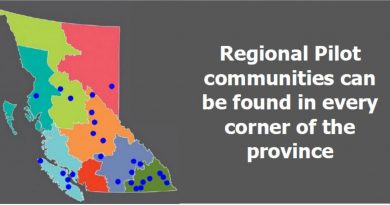Early Childhood Educator, Now Eligible for BCPNP Skills Immigration (2022/03)
Health-care workers, ECEs focus of changes to B.C.’s immigration program
The Province is responding to the crucial need for more health-care workers and early childhood educators (ECEs).
Changes will be implemented for the B.C. Provincial Nominee Program (PNP) Skills Immigration stream that prioritizes these occupations and increases support for the care economy.
“We’re taking steps to ensure the Provincial Nominee Program is meeting the needs of British Columbians today and into the future,” said Nathan Cullen, Minister of Municipal Affairs. “By placing a greater focus on skilled workers in the care economy, we’re helping attract talent from around the world committed to delivering the essential services we all rely on.”
The B.C. PNP Skills Immigration stream supports employers to meet their workforce needs and complements B.C.’s Economic Plan and is a key pillar of the StrongerBC Economic Plan to tackle inequality and grow an economy that works for everyone. These changes prioritize health-care workers and ECEs in the application process and will increase the number of people nominated in these occupations for permanent residence. Changes also immediately provide a pathway to permanent residence for people already living in B.C. and working in these sectors.
“Health-care assistants who support seniors in long-term care, assisted living and in their homes are among the most in-demand occupations in British Columbia, both today and for years to come,” said Terry Lake, CEO, BC Care Providers Association. “These important changes to the Provincial Nominee Program will help to meet the growing needs of the care economy, which in turn will benefit B.C. seniors and those who care for them.”
Health-care assistants are newly eligible to apply for the PNP program, and along with ECEs, they will now be given priority access. This change will give people with these skill sets a better chance for acceptance under the program’s eligibility criteria.
Candidates whose occupation is on a pre-determined list of in-demand health occupations, and who have a qualified, permanent job offer in B.C., will be given priority access to the PNP.
“The changes to expand the health authority category will significantly improve PHSA’s ability to recruit and retain workforce in our specialized occupations,” said Derek Menard, talent acquisition adviser, Provincial Health Services Authority. “These changes will benefit our future international hires in clinical roles previously not included in the health-care category along with non-clinical roles.”
The Province is also expanding the health authority category to include any occupation, so health authorities will be in a better position to recruit and retain workers.
Other changes to the skills immigration categories include clarifying or adjusting criteria to align with government economic priorities and strengthening program integrity, to best support qualified applicants for success.
As the only immigration program under provincial control, the PNP enables the Province to directly select qualified, prospective immigrants and nominate them and their families for permanent residency. The Province will continue to assess this program to ensure it is aligned with recovery efforts to support stronger, more resilient communities.
The StrongerBC Economic Plan moves British Columbia forward by tackling the challenges of today, while growing an economy that works for everyone. The plan sets two main goals for the province – inclusive growth and clean growth – and puts forward six missions to keep B.C. on track by closing the skills gap, building resilient communities, and helping businesses and people transition to clean energy solutions.
Quotes:
Mable Elmore, Parliamentary Secretary for Seniors’ Services and Long-Term Care –
“We’re taking action to better meet the growing needs of British Columbians. By improving access for these occupations, we’re showing that we understand the need to bring in more qualified health-care workers and streamline the process, which also means that our seniors will have access to more help as even more health-care workers are able to be hired into our health system.”
Katrina Chen, Minister of State for Child Care –
“Early childhood educators are skilled professionals who care for children at the most important time of their lives. We can’t deliver child care without them and will need about 10,000 ECEs to join the profession over the next 10 years. The PNP program will help us address the ECE staff shortage throughout B.C. by helping us recruit more ECEs. We are also raising wages, expanding education and training, and offering bursaries for people who want to enter this rewarding and in-demand career.”
Quick Facts:
- B.C. PNP offers a pathway to permanent residence for economic immigrants – workers and entrepreneurs who contribute to the labour market in the province. The program constitutes about one-third of all B.C. economic immigrants.
- The priority access care economy occupations currently make up about 3%, or less than 200 nominees annually. With more than 6,700 nominations available, there is room to increase the number of nominees in this category, driven largely by employer demand.
- More than 85% of B.C. PNP nominees stay in B.C. after gaining permanent residency.
- B.C. PNP’s Technology category has ensured priority access to in-demand tech occupations since 2017, representing just under 30% of nominees annually (about 1,700 in 2021). Technology will continue to be a priority sector.
- In 2021, B.C. had an allocation of 6,750 nominations, and is expected to reach, or exceed that level in 2022.
Eligibility Requirements for Early Childhood Educators (ECE) or ECE Assistant
- Indeterminate, full-time job offer with eligible employer
- Must be qualified for the offered position (i.e. education, experience, certified/licensed)
- Meet minimum language proficiency of CLB 4
- Minimum Language Requirements
- Meet wage and income requirements
- Certification is required to work as an Early Childhood Educator in B.C.
Who can support an application to the BC PNP?
Employer Requirements
- Established in British Columbia
- Minimum 1 year in business
- Has 5 employees (3 if outside Metro Vancouver)
- Valid licence from appropriate governing body
- Offered indeterminate, full-time job
- Satisfied recruitment requirements
Licensing Requirement





